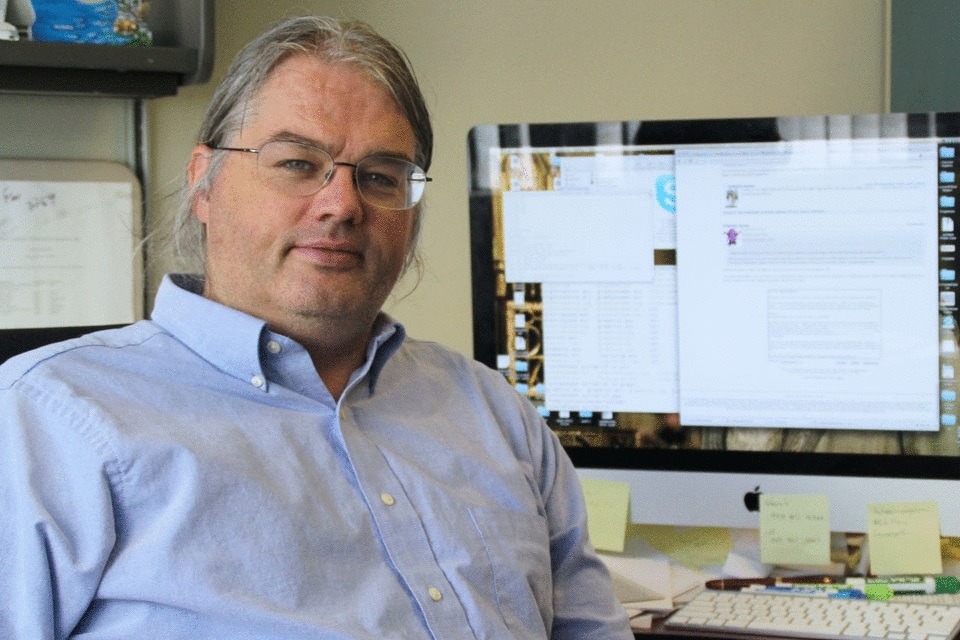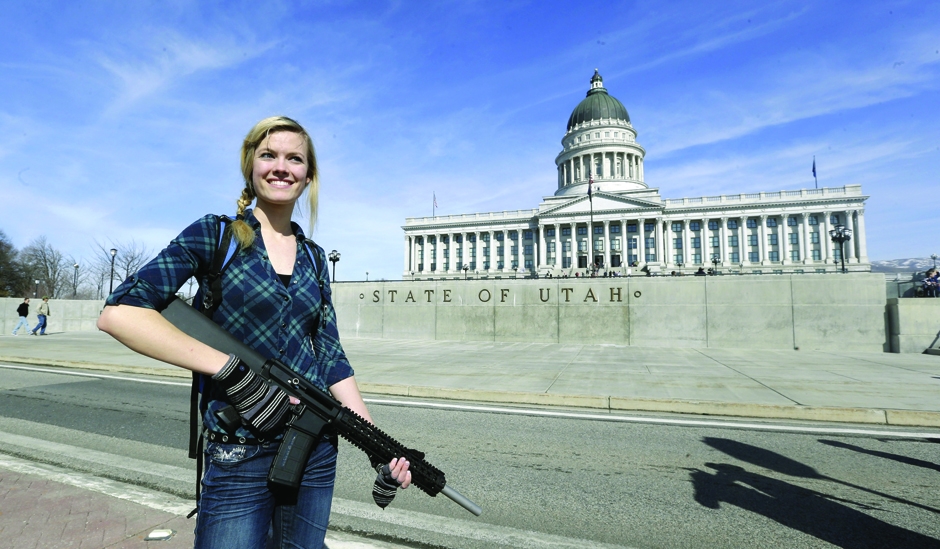
Patrick Juola, a DU computer science prof, has experience debunking authors’ aliases, such as J.K. Rowling and Elena Ferrante. However, he’s not sure who wrote the recent op-ed in the New York Times.

Patrick Juola, a DU computer science prof, has experience debunking authors’ aliases, such as J.K. Rowling and Elena Ferrante. However, he’s not sure who wrote the recent op-ed in the New York Times.
Raymond Arke | Editor-in-chief
09/13/2018
The nationwide hunt has been on for the anonymous Trump administration official who wrote the Sept. 5 New York Times anonymous op-ed critical of the president. One Duquesne professor, with plenty of experience in finding true authors’ identities, discussed how the process works.
Patrick Juola, a computer science professor, has discovered anonymous writers before. In 2013, he received international attention for identifying J.K. Rowling, of Harry Potter fame, as the author of The Cuckoo’s Calling, a detective novel.
Last year, he participated in an effort to unmask the true author behind the works of Elena Ferrante, a beloved Italian author. He is also the founder of Juola and Associates, a firm specializing in forensic text analysis for legal cases.
The recent op-ed in the New York Times, titled, “I Am Part of the Resistance Inside the Trump Administration,” has led to great speculation over which administration member wrote it and a great number of denials from officials. Juola is not working on finding the culprit this time, as he is too busy with other projects, however he offered some of his initial impressions.
“It’s not Mike Pence,” he said, disputing a common claim that the vice president was behind the op-ed. “The use of ‘lodestar’ [a word commonly used by Pence and included in the op-ed] is a blind,” meant to point the finger to Pence, Juola said.
Juola said that it would be very difficult to figure out which Cabinet member, if it was a Cabinet member, was behind it.
“No one who is a Cabinet member writes their own documents,” he said. There would be little work to compare the op-ed to, since staff members write most of their available documents.
Pence, for example, “hasn’t written his own documents in 10 years. His secretaries have secretaries. I have no idea how Mike Pence actually writes,” Juola explained.
He said language has long been something he has studied.
“Language is a set of choices. What to say, how to say it, when to say it,” Juola said. “I was always interested in linguistic similarities at the family level.”
When it comes to forensic text analysis, Juola created a computer program named Java Graphical Authorship Attribution Program (JGAAP). JGAAP uses samples of a person’s writings and compares it to the document in question, analyzing the word usage for similarities.
“If you often use ‘on’ and the ransom note says ‘at,’ then it’s not you,” he said, explaining how the process works. “I do comparisons to see if the poker tells are the same.”
He described the work of one of his colleagues who investigated whether or not a dead woman had sent the texts on her phone the night that she died. By comparing other writings to the texts and comparing a suspect’s writings, they found that the suspect wrote the texts. A case like that is more dramatic, but similar to the opinion article since both have “a lot of room for individual variations” in their writing, Juola said.
With Juola out of the hunt, the op-ed author has continued to remain a mystery.



